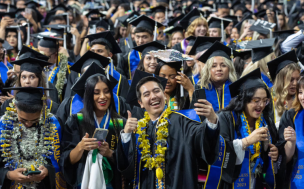In today’s interview, June discloses Lancaster’s ideal MBA candidate. The school is keen on applicants with a minimum of three years of work experience in a managerial position. For students who want to change careers, June mentions that the Lancaster MBA’s consulting projects and the career advancement programme provides the perfect opportunity to gain exposure to several industries.
Who is the ideal Lancaster MBA applicant?
An ideal candidate for our MBA would be someone with around five years of managerial experience who demonstrates the potential to be a good leader, someone who we believe would work well in a team, a candidate who has the ability to cope with the wide-ranging and extensive demands of our programme and would make a real and significant contribution to the class.
How much emphasis do you place on the GMAT score and years of work experience?
We require applicants to have a good GMAT score, although in some circumstances, if the applicant has substantial and impressive work experience, we will ask them to submit an admissions essay in lieu of GMAT. We require applicants to have a minimum of three years of work experience, preferably in a managerial capacity and with international experience.
Many people go to business school to switch careers. Can you give us some examples of remarkable career changes after the Lancaster MBA?
Many of our students change career paths after completing the MBA. We had a lady who was with KPMG who is now running multiple start-ups, most notably Gaea Naturals, which came out of the Rice Business Plan competition. Another used to be a partner in a pharmaceutical sales company and now runs an international business school. Another grad is now a professional photographer, having previously been an engineer, and another used to own a very large pet store in Russia and now works as a specialist in the CIS region for a large international event management company.
What kind of questions should applicants prepare for at the interview stages?
We like to explore the personality of the applicant in the interview in depth - what they feel are their strengths (and weaknesses), how they work in teams, what they can bring to the programme, and what they expect to gain.
We ask about their ambitions for the future and how they plan to achieve their goals.
Asking applicants about their roles and responsibilities can bring out some revealing answers. Also if we ask them to describe their personality, some can be very modest whilst others are less so! We often ask for an example of a leader whom they admire; this question can give some very surprising and interesting answers!
Any secret tips for applicants to impress the admissions team?
We look for candidates who sell themselves well, and are engaging, enthusiastic and highly motivated. We look for off-script in-depth answers to questions and seek confirmation they are the good MBA candidate we have shortlisted.
We are also looking for some good questions back from the candidate, they should demonstrate that they have researched our programme and know what our philosophy is.
What do you think appeals most to students who come on the Lancaster MBA?
When asked ‘Why Lancaster?’ besides our reputation and rankings, our applicants tell us the programme content is highly appealing, in particular the learning through action, the Career Advancement Programme and the consulting projects. We have a very diverse class with 22 nationalities in the current class.
More about students, alumni and programmes at Lancaster here
RECAPTHA :
f0
b1
7a
f0







